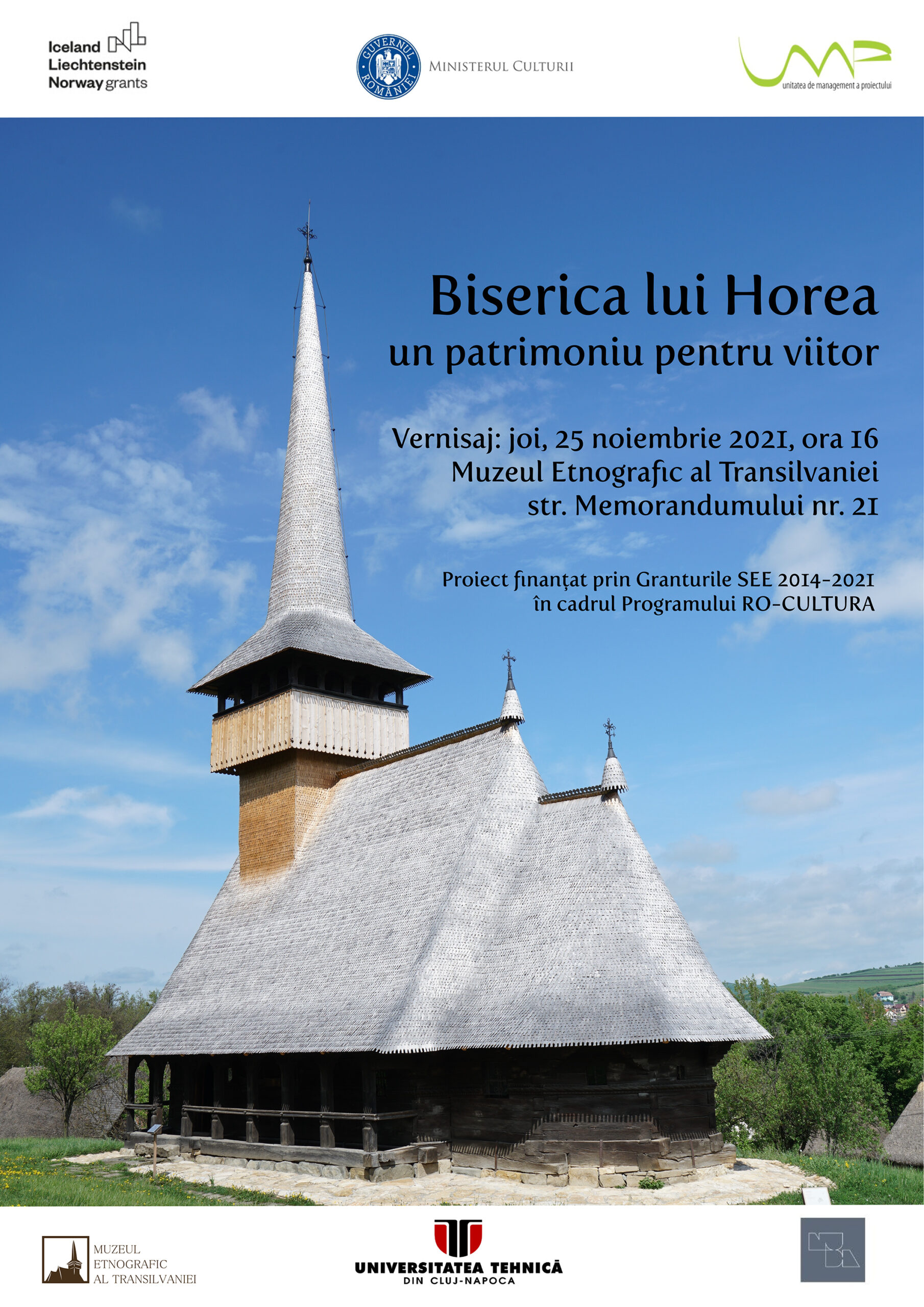The Transylvanian Museum of Ethnography, a public institution of culture that operates under the authority of the Cluj County Council, invites you to take part on November 25, 2021, starting at 4 p.m., at the opening of the exhibition “The Church of Horea” – a heritage for the future. The exhibition is organized within the Project “The Church of Horea – a heritage for the future. Valuing an 18th century architecture monument through Virtual Reality”, financed by the EEA Grants 2014 – 2021 within the RO-CULTURE Program. It is a large project, carried out by the Ethnographic Museum of Transylvania in partnership with the Technical University of Cluj-Napoca and the Norwegian association NUDA AS.
The innovative exhibition illustrates the result between the interaction between digital technologies and the classic exhibition of cultural goods, the two exhibition plans combining in a new context and in an immersive perspective. The attraction point of the exhibition is represented by the transposition into VR (virtual reality) of an ethnographic, historical and architectural monument representative for the national cultural heritage, namely the church in Cizer village, built by Horea and his team of carpenters, in 1773, together with the movable patrimony goods from this church, donated to the museum by the Diocese of Vadu, Feleac and Cluj in 1966. The movable cultural goods, the tools of a carpenter and the detailed images of the church painting, to which is added a section dedicated to Horea’s personality, are combined in a relevant exhibition, which aims to describe the history of a monument and the community to which it belonged. The real exhibition is happily completed with the spectacular component made by virtual reality, with the help of which the complete scan of the church outside and inside was managed.
The exhibition can be visited between November 25, 2021 – February 28, 2022, from Wednesday to Sunday between 10 am and 6 p.m., the last entry at 5 p.m., in compliance with the special rules for the alert state caused by the COVID-19 pandemic, the period, the visiting hours and the visiting rules can be modified depending on the incident normative acts.
